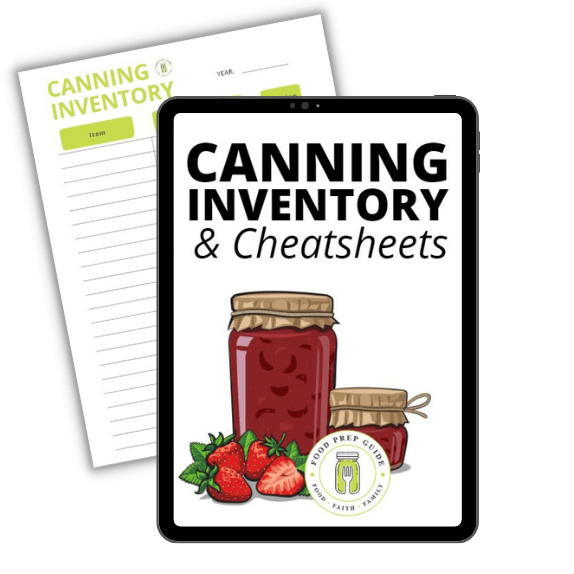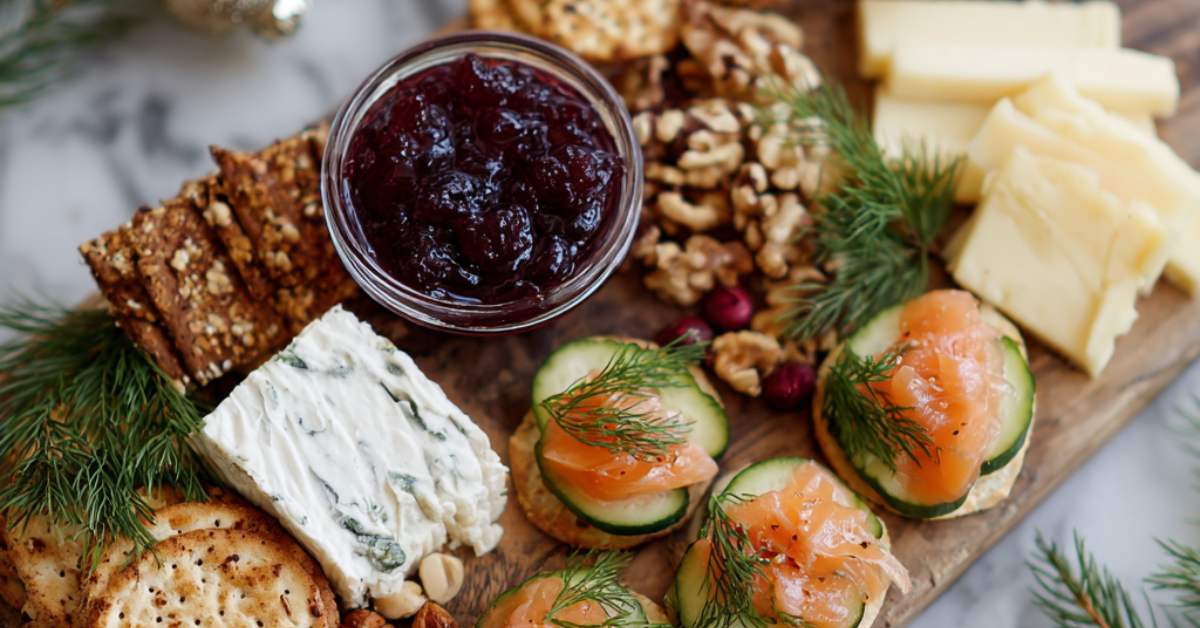Did you just finish up a batch of canning and notice that your jars look cloudy? Does this mean you did something wrong?
Do you have to throw out all that food you just spent so much time canning??
Don’t worry. Cloudy canning jars are a common problem with an easy fix.
We even have a simple tip to prevent your jars from getting cloudy in the first place!
Why Are My Canning Jars Cloudy?
While canning jars can get cloudy over time from etching, the usual culprit is a deposit of minerals from hard water.
I’m sure you’ve heard of hard water before, but what exactly is it?
Hard water is water that contains a higher-than-usual amount of dissolved minerals, particularly calcium and magnesium. When heated, the water evaporates, leaving behind these minerals in the form of a whitish film called scale.
You may have noticed this hard-water scale in other areas of your home as well, such as on your shower head or building up around your kitchen faucet.
This can happen with any water over time, but it’s especially prevalent when canning with well water.
FREE FOOD STORAGE PLAN!

Does gathering and storing a year’s worth of food for your family seem overwhelming and unachievable?
Make it easy with our step-by-step plan. Subscribe to our weekly newsletter & we’ll send it to you FREE!
Somewhat unfortunately, water is a great solvent for these minerals. As it travels through the earth, it dissolves and carries the minerals with it, right along into your well.
If you live in an area with higher concentrations of these minerals in the ground, you’ll end up with harder water.
Interestingly enough, if you can multiple loads of jars in one pot of water, you’re more likely to end up with cloudy jars.
This is because each time you boil the water, its mineral content gets higher as the water molecules evaporate, and there’s even more of a chance of leaving behind a cloudy film on your jars.
That’s why you may have no trouble until the end of a day of canning, when … bam! You suddenly have cloudy jars.
How White Vinegar in Your Canner Prevents Mineral Deposits
The good news is that these deposits aren’t dangerous to your health. The food in these jars is unaffected by the hard water deposits.
Not only is it safe to eat, there should also be no difference in quality with food canned in hard water.
However, when we work so diligently to preserve our food, we don’t want it to look “suspect” once canned.
We like to share it with friends and neighbors, and we don’t want to hide the jars while cooking dinner to keep our family from refusing to eat perfectly good food due to its appearance.
Appearance is important, especially when it comes to getting kids to eat stuff. (There’s a reason junk food companies spend millions of dollars on packaging!)
So how do you keep canning jars from getting cloudy?
While it’s relatively simple to get your jars back to their original sparkling clarity, we have an even easier solution to keep mineral deposits from building up in the first place:
Just add vinegar to your canning water!
Doing so also prevents white “dust” from accumulating in your canner.
Why does vinegar work so well in keeping these deposits from forming? From what I understand, the hard water scale has a high pH, so it’s alkaline, while vinegar is diluted acetic acid.
The chemical reaction between the acid (vinegar) and the base (hard water deposit) breaks up the bonds in the mineral deposits.
I’m sure it’s much more complicated than that, but that’s about as far as I can explain it. Let’s just go with “fun chemical reaction” and leave it at that. After all, the important thing is … it works, and it’s safe!
How Much Vinegar to Add to Canning Water
You don’t even need much vinegar to make this clearing effect happen. Just a couple of tablespoons of vinegar will do the trick.
If you add more water to your canner throughout the day, it’s a good idea to add a little more vinegar too.
Just use the cheapest white vinegar you can find—no need to get fancy.

How to Clean Cloudy Mason Jars
Okay, so we talked about how to prevent the white film on your jars. But what if you’re already staring down cloudy jars and need to fix them?
Or perhaps you got some used jars from a friend or scored a box at a yard sale?
Here’s how to get white film off canning jars, assuming it’s caused by mineral deposits—sometimes older jars just get cloudy from etching caused by microscopic scratches over time.
(If that’s what you’re dealing with, it’s best not to use those jars for canning or freezing because they break easier, though they’re still fine for dry good storage.)
Back to removing that white film caused by mineral deposits from your canning jars…
As I said, it’s not that hard to remove, especially if it just happened. Wipe down your jars with some plain old white vinegar. That’s it!
If the stains are older, you may need to soak them in a vinegar and water solution. I put about a cup of vinegar in a sink full of water when I get older jars that need some cleanup.
I also do it for my drinking glasses because our water is pretty hard being on a well.
While hard water deposits aren’t an issue when it comes to food safety or quality, cloudy canning jars aren’t ideal.
We work hard to provide natural goodness to feed our families, and we want the results to look delicious!
Fortunately, it only takes a little bit of forethought—and vinegar—to make this problem go away and have sparkling, clear jars of wholesome (and pretty) goodness!











I have two atlas mason jars that are very cloudy. I have tried vinegar 3 times as well as CLR with absolutely no improvement. Anyone have any suggestions?
If neither of those worked, it might be too far gone as far as cloudiness goes (though still usable). But I hope someone else chimes in with a solution!
I’m looking for a solution as well. I just saw another post that said to use “Bar Keepers Friend”, so I’m about to give that a try.
I’d try a soaking the jars in a citric acid bath(nice and hot, overnight). You can find it where pickling ingredients are with canning things. We have very hard well water and after my jars cool I wash them in a bath of citric acid to clean them off, vinegar in the canning water and wiping wasn’t enough.
Great tips, thanks!
I leave my jars in pure white vingear for a year
Plus I now use lemon juice Real Lemon